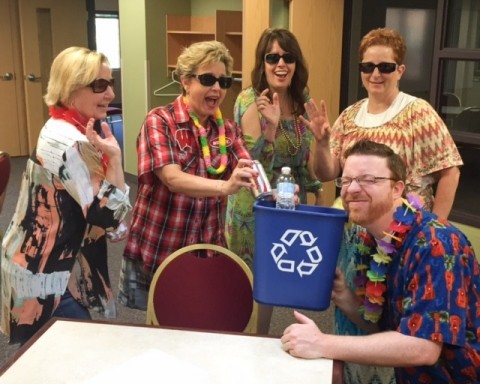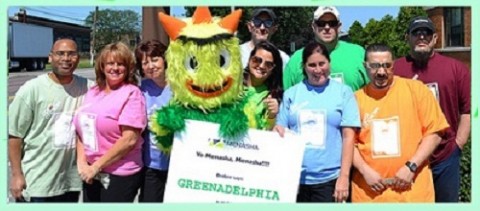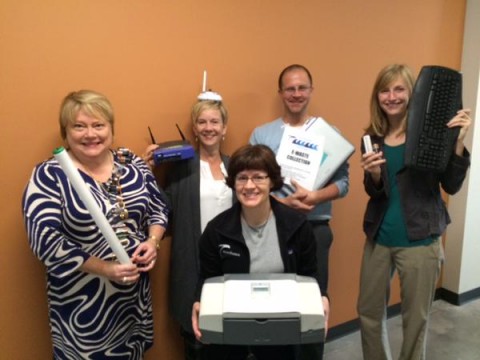Tag: teamwork
It’s Time for a Sustainability – HR Coalition
Employee engagement is a hot topic in HR circles. Experts estimate that up to 70% of US workers are not engaged at work and, further, that this disengagement costs companies about $500 billion annually. Disengaged employees are more likely to provide poor customer service, they are more prone to accidents, more likely to take sick days and they are less productive. So it’s no wonder that human resource teams are concerned about measuring and increasing engagement. At the same time, some sustainability leaders inside companies are struggling too. Facing aggressive year-after-year goals, these folks are wondering where they will get the next round of savings. Sustainability leads need fresh ideas and, ultimately, all hands on deck to generate savings.
It’s time for some creative cross-functional collaboration. A coalition, if you will.
Using Team Dynamics to Boost Engagement
“I did not want to let my team down.”
– Cool Choices player

Teams are a cornerstone of the Cool Choices online sustainability game and engagement platform: you must be on a team to play.
We rely on teams because behavior change is hard and research shows it’s less hard when you have social support.
“The data is clear: when individuals are accountable to a team or get encouragement from others, it has a big impact on their well-being — the more support they have, the greater chance they’ll achieve and maintain a healthy lifestyle.” Social Support: Impact on Health and the Bottom Line, Dean Witherspoon
In a game of Cool Choices a team’s standing depends on the activity of all team members—which means players are accountable to each other. It’s not unusual for teammates to develop nudge strategies—ways to remind each other to play.
Think about that for a moment: employees spontaneously reminding each other to adopt sustainable practices.
Jim, I saw you turn off the light – claim your Cool Choice so that we stay in the lead!
Hey Ann, I saw you claimed points today for carpooling—nice job! Did you remind Alana to play?
Most Cool Choices players talk about sustainability with colleagues at least once a week during the game. Those are conversations where folks are sharing their values as well as pragmatic strategies for saving energy and resources.
One of the big challenges with inspiring action around climate change is that individuals often feel powerless in comparison to the scale of the issue. Seeing friends and colleagues take action—and being part of a team that is taking action—is empowering. Our players are part of a team and that team is part of a larger community where hundreds or thousands of individuals are taking action.
With support, regular people can reduce their emissions; they can improve the quality of their lives while reducing the waste. Teams are a critical part of that strategy.
How can you apply the benefits of team dynamics to boost engagement in your workplace or community?
Curious about how Cool Choices can help your organization? Contact us for more information.
A Game that Inspires Climate Action

Team “Seventhwave Wavemakers” of Seventhwave organized their own e-waste drive during their game of Cool Choices.
In a game of Cool Choices, new actions are released every day. Players compete as teams to see who can take the greatest number of sustainable actions such as biking to work, turning off the lights when leaving a room, choosing a meatless meal and recycling.
Over and over, we see teams and players get inspired during the game to take on a project that goes beyond the actions in the game.
For example, a Cool Choices team recently decided to organize their own e-waste drive. This was not something we suggested they do to earn points. The team had an idea while playing Cool Choices so they took on this larger project. Cool Choices, a game that takes minutes to play, brought this team together, got them talking and inspired a whole new initiative.
A culture that embraces sustainability is contagious. It feels good to see people around you who want to do their part, big or small. If we can make sustainability visible, we’ll inspire a ripple effect where your actions inspire mine and mine inspire someone else’s. The growing momentum creates and reinforces a sense of efficacy. The more of us the better; like the team of people pictured, let’s take sustainability beyond the game, into our homes, workplaces, consumer choices and communities.
Together, we CAN embrace (and enjoy) being more sustainable. Together, with some innovation and inspiration, we can address climate change.


